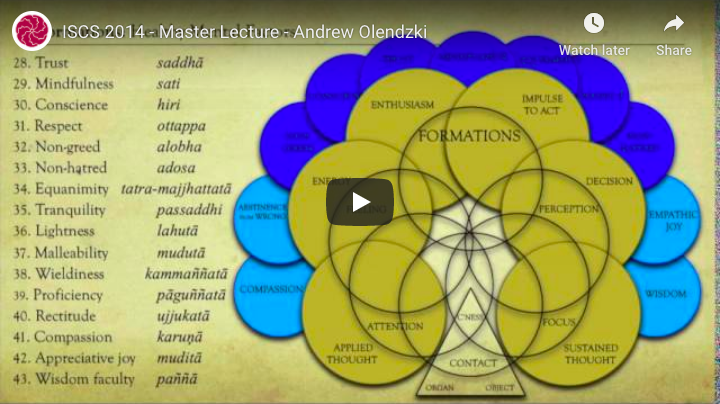The project of mapping the brain is making great progress in our time, but
mapping the mind, in contrast, is still in its infancy. All people have an inner life, but the systematic exploration of this terrain, in a manner that can be useful to the scientific investigation of consciousness, is not well developed. Buddhists have been investigating the mind directly, systematically, and empirically, for a long time and have “published” detailed accounts of their research in the classical texts of the Buddhist tradition. This material can be made available to the project of neurophenomenology, wherein specific mind states are associated with specific brain states. The Buddhist tradition offers a universal scaffolding, derived from the fact that we all have six sense bases and five interdependent functions of body and mind upon which individual experience is constructed. Its meditation texts use this schema to train the practitioner to look at their own minds in very specific ways, accessing a phenomenological intelligence that allows for insight and transformation. This presentation offers a survey of this model from an experiential and phenomenological perspective, and suggests ways that training
subjects to highlight particular aspects of experience might contribute significantly to current and future research.



